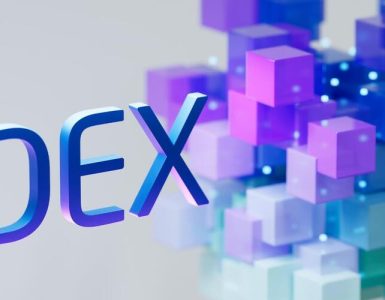Key Takeaways
Cardano is increasing its block size from 72KB to 80KB. Plutus script memory units will also get a bump.
The updates are set to ship this Friday.
Cardano is aiming to become more scalable this year in a bid to catch up with its Layer 1 competitors.
Share this article
Cardano’s core development team, Input Output, will increase the network block size by 11%. The team has also planned a memory boost for its smart contract platform, Plutus.Cardano Aims to Address Scaling Issues Cardano is increasing its block size.
NETWORK UPDATE: Today, we have proposed the next parameter update as we continue to increase #Cardano network capacity in line with the plan. The proposal will increase block size by a further 8KB taking it from 72KB to 80KB.🧵⤵️
1/9
— Input Output (@InputOutputHK) February 1, 2022In a Wednesday update posted on Twitter, Input Output reported that it would be expanding Cardano’s block size from 72KB to 80KB. Block size refers to the maximum data capacity a single block can have on a blockchain. A larger block size allows for more transactions to be added to new blocks, thereby improving scalability.
In addition to a bump in block size, the team has also planned improvements in the performance of Plutus, Cardano’s execution platform for deploying smart contracts. The team revealed that Plutus script memory units will be scaled from 12.5 million to 14 million. Expanded memory limits are expected to grow Plutus smart contracts’ ability to process more data items.The Input Output team said that the updates would “provide additional resources for Plutus scripts to improve dApp user experience while increasing overall network capacity.”The two improvements are slated to go live this Friday at 21:44 UTC.In launching the upgrade, Input Output is placing hopes on Cardano’s ability to overcome its congestion issues. Notably, Input Output launched similar updates to both the block size and Plutus memory units in November 2021.Cardano’s first decentralized exchange, SundaeSwap, suffered a rocky launch when users reported reported that high congestion was preventing them from executing token swaps. In the tweet storm announcing the updates, Input Output warned that there may still be “significant load” on the network during anticipated launches of new dApps and NFT mints. Cardano’s founder Charles Hoskinson has previously stated that the blockchain could become a hub for both DeFi and NFTs, but the network has some way to go to catch up with its competitors.Throughout 2022, Input Output is planning to continue optimizing Cardano as part of the “Basho” scaling phase. With that, Cardano will be hoping to grab market share from Ethereum and the various other Layer 1 networks that dominated the cryptosphere in 2021.Disclosure: At the time of writing, the author of this feature owned ETH and several other cryptocurrencies.
Share this article
The information on or accessed through this website is obtained from independent sources we believe to be accurate and reliable, but Decentral Media, Inc. makes no representation or warranty as to the timeliness, completeness, or accuracy of any information on or accessed through this website. Decentral Media, Inc. is not an investment advisor. We do not give personalized investment advice or other financial advice. The information on this website is subject to change without notice. Some or all of the information on this website may become outdated, or it may be or become incomplete or inaccurate. We may, but are not obligated to, update any outdated, incomplete, or inaccurate information.
You should never make an investment decision on an ICO, IEO, or other investment based on the information on this website, and you should never interpret or otherwise rely on any of the information on this website as investment advice. We strongly recommend that you consult a licensed investment advisor or other qualified financial professional if you are seeking investment advice on an ICO, IEO, or other investment. We do not accept compensation in any form for analyzing or reporting on any ICO, IEO, cryptocurrency, currency, tokenized sales, securities, or commodities.
See full terms and conditions.
Cardano’s Smart Contracts Face Major Scalability Issue
Cardano, the third-largest cryptocurrency with a market cap of over $82.8 billion, has become the subject of criticism as its ecosystem infrastructure does not allow for the most basic decentralized…
Charles Hoskinson Shares Cardano Plans for 2022
On Christmas Eve, Cardano founder Charles Hoskinson posted a 30-minute Youtube video where he reviewed some of Cardano’s greatest achievements for 2021 and shared some of its biggest plans for…
SundaeSwap Promises First Functional DEX on Cardano
SundaeSwap, a decentralized exchange (DEX) on Cardano, has launched as a public testnet. This is the first time a project has leveraged Cardano smart contracts to exchange tokens successfully on…
What Is The Crypto Volatility Index?
The Crypto Volatility Index (CVI) is a decentralized solution used as a benchmark to track the volatility from cryptocurrency option prices and the overall crypto market.





